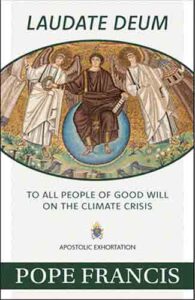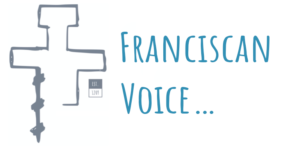Friar Mario Serrano serves as Vocation Director and Secretary of the Province of Our Lady of Consolation. For the last six years Friar Mario has represented Catholic Relief Services as a Global Fellow. In November 2024, Friar Mario wrote about the climate crisis and how funding climate resilience not only saves lives but is also fiscally responsible. His article was published in The Courier Journal, a newspaper published in Louisville, Kentucky.

I have enjoyed the few rainy days in November as we approach Thanksgiving. However, we must never forget the catastrophic downpour that hit Easter, Kentucky, in July 2022, causing flooding that devastated communities. Flash floods began on July 26, and by July 28, walls of water tore through valleys, sweeping away houses, vehicles, and infrastructure. With 44 lives lost, over 1,400 rescues required, and 13 counties declared federal disaster areas; experts deemed it a thousand-year flood—a rare but catastrophic event.
Eastern Kentucky still bears the scars of the flood, and the recovery is ongoing for some. In October, my hometown in New Mexico faced a similar ordeal, experiencing a record-breaking flash flood. These events underscore the new normal: storms and floods that once seemed rare are now alarmingly frequent, and the aftermath is familiar: loss of life, destruction of homes, and communities pushed to their limits. This phenomenon is not unique to the U.S.
The climate crisis is undeniably driving the global rise in extreme weather events. As temperatures increase, the world’s most vulnerable communities suffer the most. Building resilience is critical for our communities, from Kentucky to New Mexico and beyond. Resilience relies on solid infrastructure, effective collaboration, and a collective commitment to rebuilding more robust and better-prepared regions for the future.
Funding climate resilience not only saves lives but is also fiscally responsible. According to experts, every dollar spent on adaptation yields between $2 and $10 in economic benefits.
While many marginalized communities bear the brunt of climate’s dramatic changes, we all can live in a way that seeks to protect and adapt to the earth’s groaning (Romans 8:22). Addressing climate change is a matter of justice. Justice is all about striving to have meaningful and right relationships with people and creation that move us to a deep appreciation and desire to care for. The wealthiest nations, who bear the most significant historical responsibility for greenhouse gas emissions, are morally obligated to support those on the frontlines of this crisis. I urge U.S. leaders to step up and demonstrate continued leadership on climate policy. The U.S. should commit to financing adaptation for vulnerable nations, primarily to support marginalized communities worldwide.

We must act now before the impacts of climate change overwhelm us. I urge our leaders to respond to this crisis with the courage and commitment it demands. As Pope Francis states in Laudate Deum, “What is being asked of us is nothing other than a certain responsibility for the legacy we will leave behind, once we pass from this world.”
-Friar Mario L. Serrano, OFM Conv.
A Global Fellow for Catholic Relief Services


